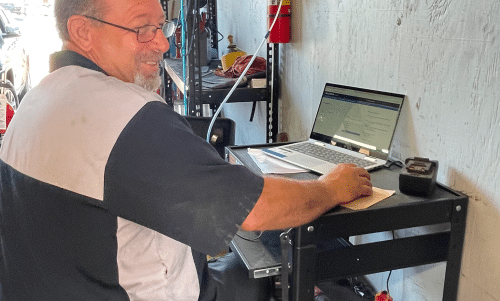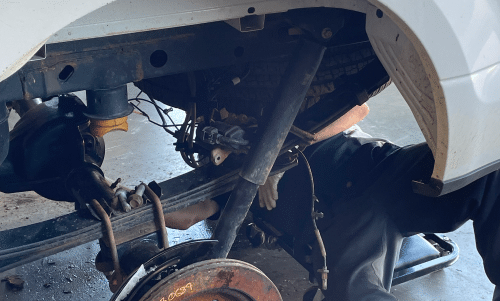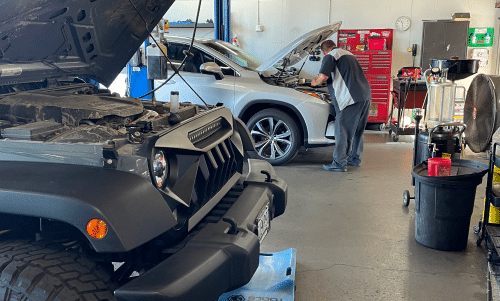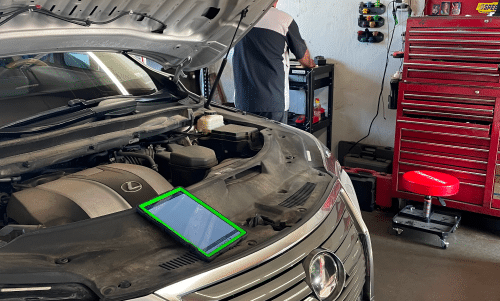At Yocum Automotive, we try to make auto repair as painless as possible. Our goal is to fix your vehicle swiftly while maintaining high standards. We handle a wide range of repairs, so you can get everything done in one place instead of visiting multiple shops or a dealership. Our auto technicians and service advisors have many years of experience working on most makes and models, including Chevy, GMC, Ford, Dodge, RAM, Honda, Toyota, Nissan, Kia, Hyundai, BMW and Mercedes Benz.


When the check engine light on your vehicle’s dash comes on, it’s telling you that something isn’t right – usually with the engine. In some cases, the problem could be with the transmission system. The engine has several sensors. Some tell the electronic control module (ECM) what you are asking for, such as stepping on the accelerator. Others make adjustments as directed by the ECM. However, if the ECM’s adjustments do not bring the readings within range, the ECM sets and stores a code and turns the check engine light on.
Yocum Automotive has the diagnostic equipment to pull the codes and determine what is causing the codes. For instance, even if the computer flags an issue with the oxygen sensor, the real problem might be something else like a faulty spark plug or fuel pump. Our job is to figure out what the problem is and repair it.
Bringing your vehicle in for maintenance might seem like it’s a pain in the rear. However, if you don’t, you’ll have a bigger pain when things break. Your vehicle has many parts that wear out over time, including spark plugs (tune-up), air filters, fuel filters, transmission filters, belts, hoses, and more.
The purpose of factory-recommended maintenance is to ensure everything that can wear out is replaced before it leaves you stranded.


Whenever you bring your vehicle in for maintenance, we check the brakes. In most cases, the brakes will warn you ahead of time, but that doesn’t give you much time to arrange for brake repair. In fact, once you hear the brakes squealing or grinding, you’re already damaging the rotors.
Changing the oil and filter and lubing your vehicle is part of the factory-recommended maintenance. Most vehicles use synthetic oil and have a recommendation of 5,000 to 7,500 miles between oil changes.
Ignoring oil changes can affect fuel economy because the dirty oil doesn’t provide enough lubrication for the moving parts inside the engine. It can also cause the engine to overheat if the oil is dirty enough. Finally, ignoring the oil for thousands of miles past the recommended oil change interval could cause the dirty oil to build up in the engine and prevent oil from lubricating the moving parts.


visibility_offDisable flashes
titleMark headings
settingsBackground Color
zoom_outZoom out
zoom_inZoom in
remove_circle_outlineDecrease font
add_circle_outlineIncrease font
spellcheckReadable font
brightness_highBright contrast
brightness_lowDark contrast
format_underlinedUnderline links
font_downloadMark links